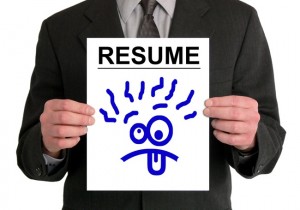#YourCareer : 16% Unemployment This Summer: CBO’s Prediction And How To Prepare For It. Are you Processing This?
The economic fallout from the novel coronavirus pandemic is expected to be drastic and last much longer than first believed. On Friday, the Congressional Budget Office updated its 2020 and 2021 projections for the U.S. economy. CBO is forecasting that unemployment is likely to rise to 16% and then hold at levels of 10% through the end of 2021.
If you’ve learned that your company will soon begin layoffs or that your job is being eliminated, you have to get your mind around processing the bad news, and then you have to take action.
This is mind-blowing. It was just February that the U.S. economy had been riding a wave of record-level low unemployment with numbers as low as 3.5%. Can it really be that in neck-breaking speed unemployment could rise from 3.5% to 16% by summer? Yikes!
Are you processing this? It was also announced this week that 26.5 million new jobless claims have been filed since mid-March. When you add this to the fact that CBO’s economists and analysts are predicting 3rd quarter unemployment of 16%, you get the picture.
f this is to be, it means that unemployment will exceed the 14% high of the Great Depression as soon as this summer. And then it’s expected that it will remain excessively high and hover around 10% (the peak level of the Great Recession) all the way through 2021. If these predictions prove true, millions more Americans will become unemployed, and they will stay that way much longer than most had hoped.
This drastic increase in unemployment numbers was first reported in early April when the first of five straight weeks of devastating job reports started rolling out. Five weeks ago, The Guardian summed it up this way. “America’s decade-long record of continual job growth came to a shuddering halt on Friday as the US unemployment rate rose for the first time since 2010.” That first week it was 701,000. So we’ve gone from 701,000 new jobless claims to 26.5 million in a stunningly short time.
With the CBO predicting that it’ll get much worse before it gets better, here’s my recommendation for how you can better prepare for it.
Pay attention to what your company and others are doing.
Whether you are employed or unemployed today, pay attention. Whether you think your job is at risk or you’ve already lost it, pay attention. And whether you think your job is safe and secure and will remain that way, still pay attention. It’s up to you to do what’s necessary to own your career. You can’t afford to blindly leave your career—and financial security—in the hands of others. None of us can.
Stay in the know about what’s happening in the economy, with your employer, with your employer’s competitors, with your employees and all across your industry, and then ask lots of questions. Find credible sources of information—organizations, companies, and people—and follow them.
Find out who’s hiring and who’s not; who’s making pay cuts and who’s dolling out pay raises. If the core of your network is comprised of people rooted in a dying profession or a dying industry, take notice. To stay informed, you want to build a network that includes people who work in growing professions and industries for the future. Take notice of the companies that are disrupting themselves as a way to stay competitive and those who can’t seem to embrace anything beyond legacy systems and processes.
And, if you find that your job isn’t actually at risk today but you’re considering a career change, first assess what career capital you can leverage and how to go about doing it. I recommend you set time aside to answer these six questions before making any voluntary moves.
Learn where the demand is.
When making decisions about your job or career, it’s important to know what’s driving demand because demand is a huge catalyst for input (sales, business exchanges, deliverables, resources, money, innovation, time, etc.). Where you see a need—where you see demand—focus on it. Search out the companies and industries that are likely to be called on to meet demand so that you can better determine who is likely hiring now or will be hiring soon.
Conduct your own analysis by learning the answers to questions such as these.
- What are the essential products and services the economy needs now?
- What are the essential services and programs of the future?
- Where is the demand in the economy?
By figuring out answers to these kinds of questions, you can make better decisions about which companies to seek out and which ones to avoid for hiring opportunities. Hence, you can better manage your career for the long haul.
If you’ve already lost your job, focus here.
Sometimes you can do everything right. You can play to win and still lose. You can manage your career on an upswing and still have it take an unexpected downturn. Things happen. Sadly, even bad things happen, and they happen to good people far too often.
If you’ve learned that your company will soon begin layoffs or that your job is being eliminated, you have to get your mind around processing the bad news, and then you have to take action. It’s very important that you immediately file for unemployment, learn about the available mortgage protection programs if you are struggling in that area, and take care of yourself. Read this advice for more specifics on what to do next after learning of a pending job loss, a termination, a layoff, or any other decision that otherwise leaves you unemployed.
It’s okay to feel disappointment, anger, sadness, and an array of other emotions during such a time. Give yourself the space to process the news and your feelings about it. But by all means, you’ve got to keep it moving and lockdown that next job as quickly as possible.
Forbes.com | April 26, 2020










